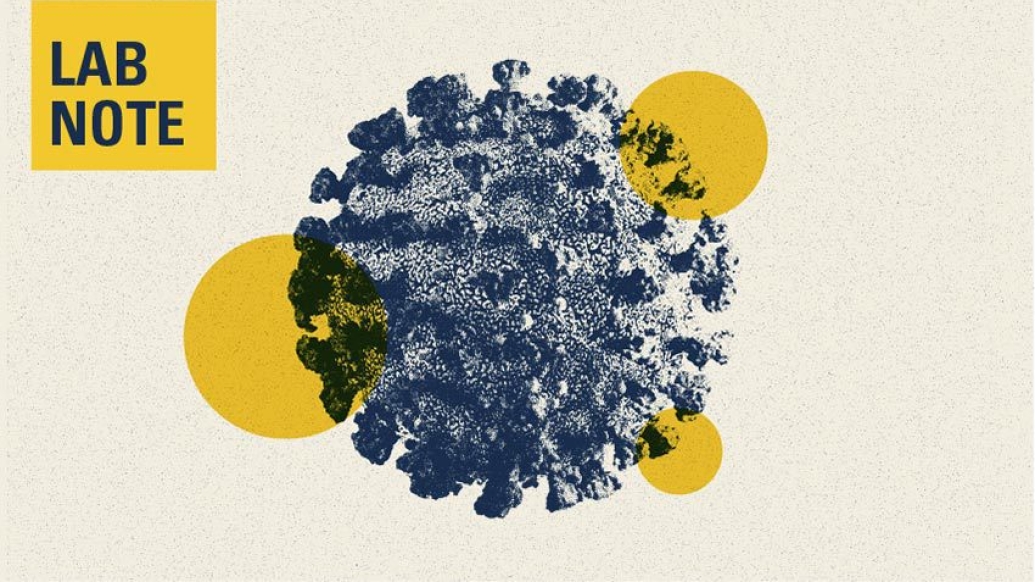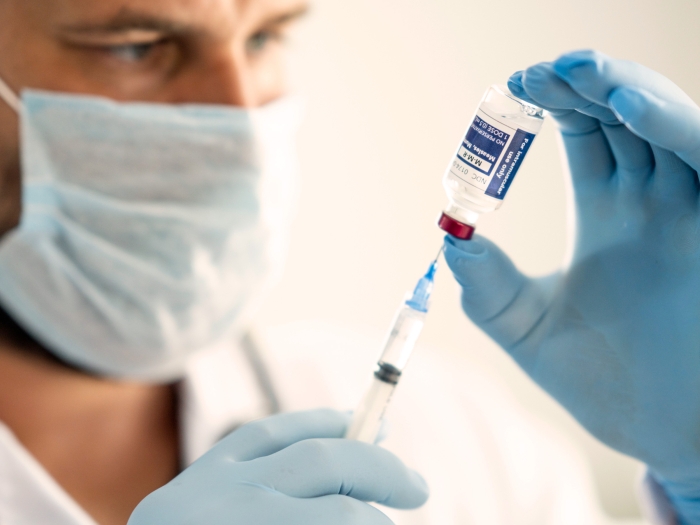The finding brings researchers closer to finding the exact cause of inflammation and clotting in severe COVID-19 patients.
10:39 AM
Author |

Scientists have discovered that "rogue" antibodies found circulating in the blood of COVID-19 patients have the potential to cause cells to lose their resistance to clotting.
Researchers at Michigan Medicine and the National Heart, Lung, and Blood Institute studied the blood samples of nearly 250 patients hospitalized for COVID-19. They found higher-than-expected levels of antiphospholipid autoantibodies, which can trigger blood clots in the arteries and veins of patients with autoimmune disorders, including lupus and antiphospholipid syndrome.
Antibodies typically help the body neutralize infections. Autoantibodies are antibodies produced by the immune system that mistakenly target and sometimes damage the body's own systems and organs.
In a 2020 study, the research group found that autoantibodies from patients with active COVID-19 infections caused "a striking amount of clotting" in mice. In the new study they uncover the possible reason: the autoantibodies appear to stress the endothelial cells that make up the inner lining of blood vessels and, in doing so, cause the cells to lose their ability to prevent blood clots from forming. The results are published in Arthritis & Rheumatology.
"This provides an even stronger connection between autoantibody formation and clotting in COVID-19," said Hui Shi, M.D., Ph.D., lead author of the paper and rheumatology research fellow at Michigan Medicine. "When endothelial cells are activated, they cause healthy blood vessels to become 'sticky,' attracting other cells to the vessel walls and becoming more prone to thrombosis. This can affect many of the body's essential organs."
SEE ALSO: New Cause of COVID-19 Blood Clots Identified
The researchers found that when they removed the antiphospholipid autoantibodies from COVID-19 blood samples, the endothelial cell activation that promotes clotting was lost. While the link is strong, future studies must be done to find whether these autoantibodies are the precise cause of thrombosis that contributes to clotting and increased severity of COVID-19, says Jason Knight, M.D., Ph.D., co-author of the study and associate professor of rheumatology at Michigan Medicine.
"We must do more research to decide if it is beneficial to screen patients with severe COVID-19 for these autoantibodies to evaluate their risk of clotting and progressive respiratory failure," Knight said. "Eventually, we may be able to repurpose treatments used in traditional cases of antiphospholipid syndrome for COVID-19. This is a further step towards a full understanding of the interplay between coronavirus infection, the human immune system and vascular health."
Like Podcasts? Add the Michigan Medicine News Break on iTunes, Google Podcasts or anywhere you listen to podcasts.
Additional authors include Yu (Ray) Zuo, M.D., Sherwin Navaz, B.S., Alyssa Harbaugh, B.S., Claire Hoy, B.S., Alex Gandhi, M.S., Gautam Sule, Ph.D., Srilakshmi Yalavarthi, M.S., Kelsey Gockman, Jacqueline Madison, M.D., Melanie Zuo, M.D., Michael Maile, M.D., all of Michigan Medicine, as well as Jinato Wang, NHLBI, Yue Shi, Shanghai University of Sport, Yogendra Kanthi, M.D., NHLBI
This work was supported by a grant from the Rheumatology Research Foundation.
Paper cited: "Endothelial cell-activating antibodies in COVID-19." Arthritis & Rheumatology. DOI: 10.1002/art.42094

Explore a variety of healthcare news & stories by visiting the Health Lab home page for more articles.

Department of Communication at Michigan Medicine
Want top health & research news weekly? Sign up for Health Lab’s newsletters today!





